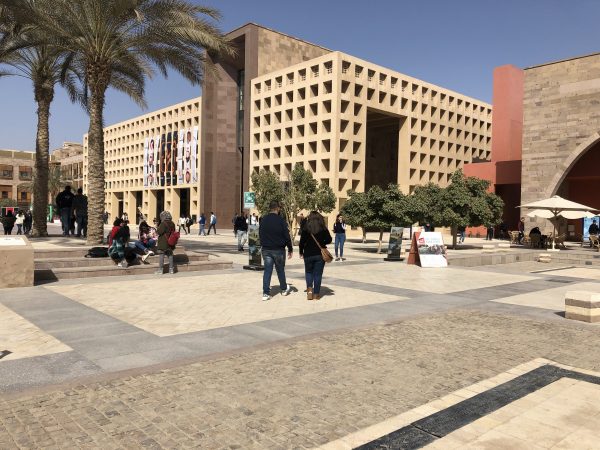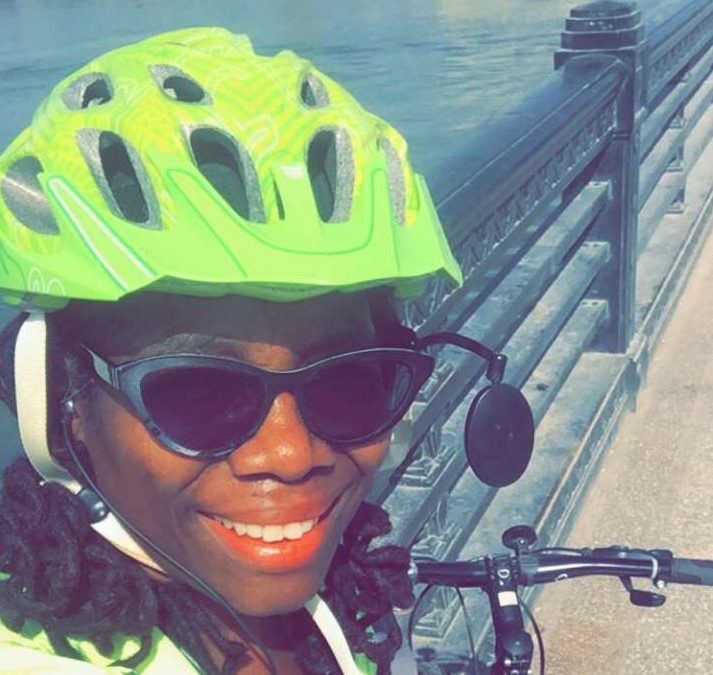When Words Fail, Music Speaks
Reporter: Sarah Yousry
Photographer: Jana Fakahany
Some people listen to music while at the job, at the gym, or even when stuck in traffic. They’ll whistle a tune or shake their hips to the beats but what they might not realize is that music has powerful impact on a person’s mood.
In fact, so impactful is music that it is even used as a form of psychotherapy known as music therapy.
Music therapy was originally used by American composer Paul Nordoff and British music healer Clive Robbins in the mid-20th Century as a treatment method for mental illness. Popularly known as the Nordoff-Robbins Music Therapy, its authors describe it as an “improvisational and compositional approach to individual and group therapy”.
The ancient Egyptians described musical incantations to heal sick people as they were fascinated by vowel sounds for their vocal strength. They believed that these sounds could generate vibrations with healing powers. Using a method called “intonation,” they manipulated the vowel sound using breathing and harmonies to make therapeutic sounds.
Scientist Laurel Elizabeth Keys writes in her book Intonation: The Creative Power of Sound that “Intonation is an ancient method of healing. The idea is simply to return people to their natural patterns.”
Last month, AUC’s School of Continuing Education hosted a conversation on the effects of music on one’s mental health in a lecture titled “Music is my medicine“, featuring pianist and composer Steve Sandberg, Zach Brock, a violinist and composer, and Cherine Samir, a sound healer and founder of the “9 healing Vibes” technique.
“I suffered from back pain and nothing seemed to help, until I reached a very intense middle-age crisis where I got very depressed, had a lot of anxiety, and I had a lot of help from different people. But I decided to help myself in my own way. I wanted to do something concrete, so I started to play [Johanne Sebastian] Bach for 25 minutes and immediately I started to feel the process, which got me out of my own dark circle,’’Sandberg said.
For Brock, however, music turned out to be a physical lifeline.
“When I was 19, I got into an accident which caused me a lot of unpleasant results, my knee cap was broken into eight pieces, my eye socket was also broken, and I entered into a world after that which made me not a normal teenager anymore”.
However, looking back on this experience, it made him realize that there were three things that made him establish a new pattern for himself. First, his access to doctors who were able to help him at that moment, and most importantly, his violin teacher. And, of course, music itself.
“I probably saved my life with music, and of course with the help of a doctor that knew how to ease me off, because at that moment I could not have taken it for another day.”
The other major event in his life was following the advice of his violin teacher to join a peer group. Growing up seeing other teenagers outpacing him as he dropped out of school, he felt like he was stuck in a rut caused by his unfortunate accident.
Brock fell into a depressive spiral, questioning everything around him including his future.
“My friends were graduating, but I was still recovering from this accident, still having surgeries to fully recover from it, but what my violin teacher did was that he always invited me to the violin classes and that was what kept me attached to the violin and music.”
The violin demanded a lot of work and also the inspiration from his teacher helped him to overcome the pain the accident left on his body.
“I found out that I could play, my arms and my legs were still working and able to pull my violin out and play, I felt so lucky back then before the trauma”.
For some, music is not only a life-altering experience but can inspire one to change career paths – a courageous move they may not have otherwise taken.
For Samir, sound gave her the courage – and opportunity – to give up corporate life and discover more about her persona and her journey away from the normal business routine.
“I went to a gong bath and that was when it caught my heart, it was called a gong meditation, or a sound bath, and it felt so real, and it felt like a whole world that I did not know anything about”.
Dr Hussein Imam Singa, a psychiatrist who treats music at the Launch Center, which is an international center for children with behavioral, educational or developmental problems, says music is a form of treatment that uses the instrument and recorded music for individual therapy or group therapy.
“There is a protocol that is used according to each patient; there are specific tools that are used with a person who suffers from autism, for example, there is a musical instrument that reduces motor neuron seizures, and increases attention and focus; such as percussion instruments such as drums used with children who suffer from autism so that the child is able to comprehend notes and time and integrate movement with audible pieces,” he told The Caravan.
Listening to music has been proven to calm the nerves and thus positively affect the way of life and overall performance. Research has also shown that music activates the cognitive, motor and speech centers in the brain by accessing the common nervous systems.
“It is also about mental illnesses such as depression, anxiety, insomnia and attention deficit hyperactivity disorder (ADHD). It depends on the music and recorded songs, as it depends on the case and the doctor’s diagnosis,” Singa said.
He added that like ADHD cases, music therapists prefer songs that have a high rhythm and joy because they increase the hormone dopamine and help patients employ movement in a healthy release.
“This is what distinguishes music therapy more than physical therapy, as I treat patients who suffer from psychological and nervous trauma, and we follow a system tailored to their condition, such as listening to certain musicians’ clips at specific times, such as ten minutes Bach in the morning, This system had a strong result, as music acts on the right hemisphere of the brain, which is responsible for focus and innovation.”
AUC Music Professor Ashraf Fouad says that music therapy take many forms; Fouad added that treatment is not limited to listening to music but also practicing and playing it.
“Listening to quiet songs to increase production while studying, or listening to songs that have a high and fast pace to increase adrenaline while driving or dancing and converting it into dopamine to feel happy at that moment,” he explained.




